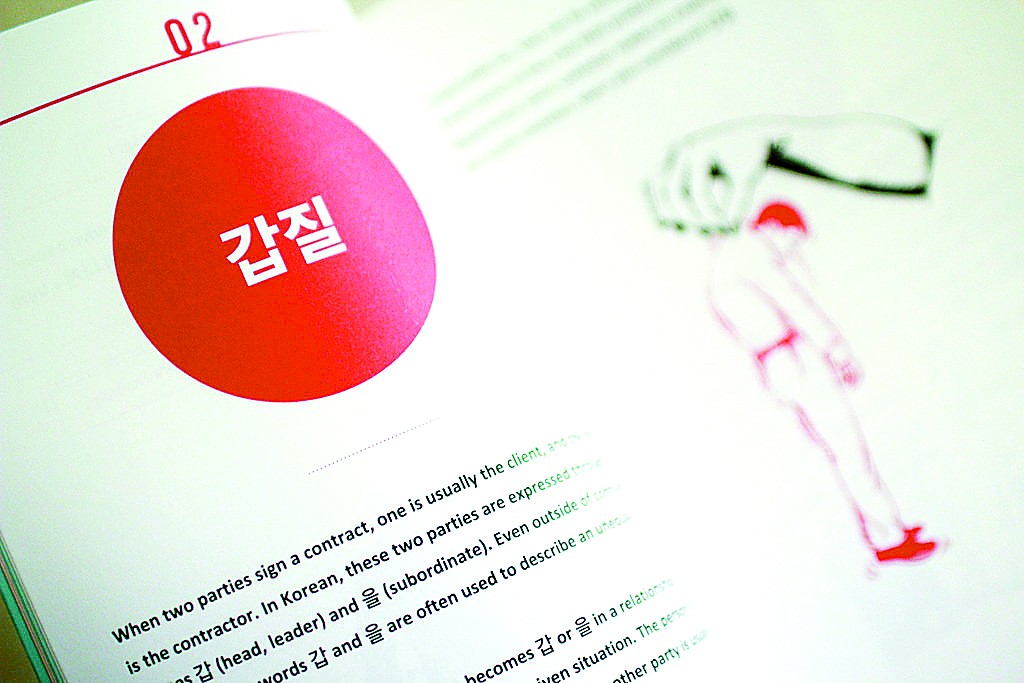
![]()
Korean Slang Expressions
갑질
When two parties sign a contract, one is usually the client, and the other is the contractor. In Korean, these two parties are expressed through the names 갑 (head, leader) and 을(subordinate). Even outside of contractual contexts, the words 갑 and 을 are often used to describe an unequal relationship.
There is no universal rule as to who becomes 갑 or 을 in a relationship, but it is usually clear who is 갑 or 을 in the given situation. The person or organization that has the final say and can “fire” the other party is usually considered to be 갑.
갑질 refers to any characteristic behavior that 갑 displays by overusing and abusing power or authority. If an employer demands too much from an employee and makes the employee apologize for things he/she isn’t responsible for, that can be considered 갑질. If a big corporation forces small stores to buy only their products, that is 갑질. In retail, if a snobbish department store customer makes an employee kneel down and apologize for small mistakes, that’s also considered 갑질.
Conjugations and Common Usages
Noun Form
갑질
Noun + Verb
갑질(을) 하다
More Examples
- 이런 갑질을 왜 가만히 보고만 있어요?
Why do you just sit back and watch this injustice? - 갑질하는 회사랑은 일 안 해요.
I don’t work with companies that act like an arrogant bully.Sample Dialogue
A: 나 오늘 회사 그만뒀어. I quit my job today.
B: 뭐라고? 정말? 왜? What? Really? Why?
A: 직속상사가 너무 갑질을 해서. My direct boss was bullying me and being too
Provided by Talktomeinkorean
MyKoreanStore.com


![Hangar images indicate North Korean advances in military drone domain Satellite photos taken on March 28, included in Beyond Parallel's report on North Korea, shows what appears to be seven new drone hangars at the Banghyon Air Base. [SCREEN CATPURE]](https://www.koreadailyus.com/wp-content/uploads/2025/04/0402-Hangar-100x70.jpg)

![Deeper-I, Efinix sign deal to develop world’s first AI-FPGA single-chip solution Ikuo Nakanishi, left, vice president of sales at Efinix and Lee Sanghun, right, CEO of Deep-I pose for a photo after signing MOU on March 26. [Provided by Deeper-I]](https://www.koreadailyus.com/wp-content/uploads/2025/04/0401-DeeperI-100x70.png)